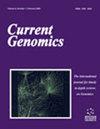Genomics in Diabetic Kidney Disease: A 2024 Update
IF 1.4
4区 生物学
Q4 BIOCHEMISTRY & MOLECULAR BIOLOGY
引用次数: 0
Abstract
: Diabetic Kidney Disease (DKD) remains the leading cause of Chronic and End Stage Kidney Disease (ESKD) worldwide, with an increasing epidemiological burden. However, still, the disease awareness remains low, early diagnosis is difficult, and therapeutic management is ineffective. These might be attributed to the fact that DKD is a highly heterogeneous disease, with disparities and variability in clinical presentation and progression patterns. Besides environmental risk factors, genetic studies have emerged as a novel and promising tool in the field of DKD. Three decades ago, family studies first reported that inherited genetic factors might confer significant risk to DKD development and progression. During the past decade, genome-wide association studies (GWASs) screening the whole genome in large and multi-ethnic population-based cohorts identified genetic risk variants associated with traits defining DKD in both type 1 and 2 diabetes. Herein, we aim to summarize the existing data regarding the progress in the field of genomics in DKD, present how the revolution of GWAS expanded our understanding of pathophysiologic disease mechanisms and finally, suggest potential future directions.糖尿病肾病的基因组学:2024 年更新
:糖尿病肾病(DKD)仍然是全球慢性肾病和终末期肾病(ESKD)的主要病因,其流行病学负担日益加重。然而,人们对该疾病的认识仍然不足,早期诊断困难,治疗效果不佳。这可能是由于 DKD 是一种高度异质性疾病,其临床表现和进展模式存在差异和变异。除环境风险因素外,遗传学研究已成为 DKD 领域一种新的和有前途的工具。三十年前,家族研究首次报道了遗传因素可能对 DKD 的发生和发展具有重大风险。在过去的十年中,全基因组关联研究(GWAS)在大型多种族人群队列中进行了全基因组筛查,发现了与 1 型和 2 型糖尿病 DKD 特征相关的遗传风险变异。在此,我们旨在总结有关 DKD 基因组学领域进展的现有数据,介绍 GWAS 革命如何扩展了我们对疾病病理生理学机制的理解,最后提出潜在的未来发展方向。
本文章由计算机程序翻译,如有差异,请以英文原文为准。
求助全文
约1分钟内获得全文
求助全文
来源期刊

Current Genomics
生物-生化与分子生物学
CiteScore
5.20
自引率
0.00%
发文量
29
审稿时长
>0 weeks
期刊介绍:
Current Genomics is a peer-reviewed journal that provides essential reading about the latest and most important developments in genome science and related fields of research. Systems biology, systems modeling, machine learning, network inference, bioinformatics, computational biology, epigenetics, single cell genomics, extracellular vesicles, quantitative biology, and synthetic biology for the study of evolution, development, maintenance, aging and that of human health, human diseases, clinical genomics and precision medicine are topics of particular interest. The journal covers plant genomics. The journal will not consider articles dealing with breeding and livestock.
Current Genomics publishes three types of articles including:
i) Research papers from internationally-recognized experts reporting on new and original data generated at the genome scale level. Position papers dealing with new or challenging methodological approaches, whether experimental or mathematical, are greatly welcome in this section.
ii) Authoritative and comprehensive full-length or mini reviews from widely recognized experts, covering the latest developments in genome science and related fields of research such as systems biology, statistics and machine learning, quantitative biology, and precision medicine. Proposals for mini-hot topics (2-3 review papers) and full hot topics (6-8 review papers) guest edited by internationally-recognized experts are welcome in this section. Hot topic proposals should not contain original data and they should contain articles originating from at least 2 different countries.
iii) Opinion papers from internationally recognized experts addressing contemporary questions and issues in the field of genome science and systems biology and basic and clinical research practices.
 求助内容:
求助内容: 应助结果提醒方式:
应助结果提醒方式:


